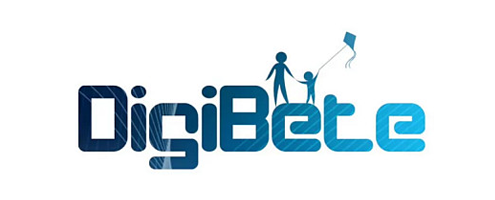NIHR funding to develop a chatbot for young people with type 1 diabetes
Monday 24 May 2021
A team of researchers from Yorkshire have been awarded £800,000 through the NIHR Invention for Innovation competition for a research project that aims to develop a virtual assistant (chatbot) and online age-appropriate digital resources for young people with type 1 diabetes moving from paediatric to adult care. Type 1 diabetes is the second most common condition in children and young people. In the United Kingdom, 29,000 children and young people live with type 1 diabetes, a lifelong condition which requires multiple daily injections of insulin. Young people with diabetes have to move their healthcare from children’s to adult health services when they reach 16-19 years, a process known as transition.
Adult health services are different to children’s services. In adult services, young people are expected to independently manage their health condition. This includes organising hospital appointments as well as managing their medication and diet without being reminded. National guidance recommends that children’s health services should begin to teach young people how to independently manage their diabetes from about 11 years old. However, many young people feel unprepared to move to adult healthcare services when the time comes to move on. This can result in young people disengaging from health services and poorly managing their diabetes, potentially leading to complications and more hospital admissions. One-third of young people have poor diabetes control by the time of their first adult clinic visit and over 50% of young people with chronic health conditions report inadequate support and services during their transition to adult healthcare.
Our expert team of doctors, nurses, researchers, young people, parents, software developers, designers, digital inclusion experts have secured funding from the NIHR to develop a novel approach to managing transition in type 1 diabetes by developing the first NHS approved chatbot for young people with type 1 diabetes. The diabetes chatbot, co-designed with young people with type 1 diabetes, parents, and health care professionals, will be developed in collaboration with IBM and DigiBete (www.digibete.org). The chatbot will provide young people with 24/7 access to relevant and engaging clinically approved information that meets their identified needs and preferences and will provide them with the support they need as they move to adult diabetes services. Our team are also working closely with mHabitat (www.wearemhabitat.com) to explore the barriers faced by digitally and socially excluded young people when accessing NHS services and to make sure the chatbot is accessible to all young people.
Professor Paul Dimitri, Director of NIHR Children and Young People MedTech Co-operative (www.cypmedtech.nihr.ac.uk), is leading the team. Professor Dimitri said, “Transition from paediatric to adult health services for children with type 1 diabetes and other lifelong conditions is a particularly challenging time and many young people are not adequately prepared for this. By using new technology approaches such as chatbots to support young people, we are able to provide additional support to keep young people engaged with their healthcare and in-turn prevent potentially life-threatening and long-term complications”.
The National Institute for Health Research (NIHR) is the nation’s largest funder of health and care research. The NIHR:
- Funds, supports and delivers high quality research that benefits the NHS, public health and social care
- Engages and involves patients, carers and the public in order to improve the reach, quality and impact of research
- Attracts, trains and supports the best researchers to tackle the complex health and care challenges of the future
- Invests in world-class infrastructure and a skilled delivery workforce to translate discoveries into improved treatments and services
- Partners with other public funders, charities and industry to maximise the value of research to patients and the economy
The NIHR was established in 2006 to improve the health and wealth of the nation through research, and is funded by the Department of Health and Social Care. In addition to its national role, the NIHR supports applied health research for the direct and primary benefit of people in low- and middle-income countries, using UK aid from the UK government.




